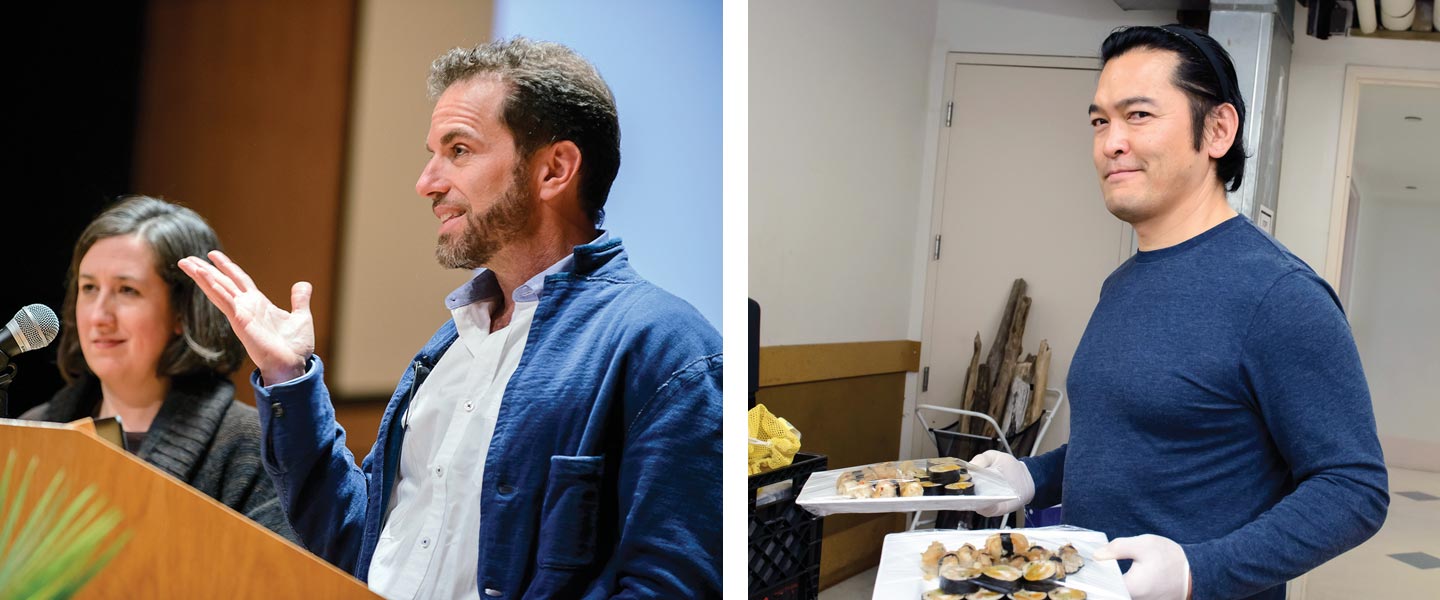Sidebar
Questioning the Calorie
The roster of distinguished scholars who spoke at “Feeding the Future,” the Goodwin-Niering Center for the Environment’s biennial conference, came from a variety of fields— technology, evolutionary biology, community activism, culinary arts — to offer a range of ideas around how to tackle the manifold problems with the planet’s food system. Their ideas were, by necessity, radical, as there’s a degree of uprooting the norm that has to happen if true, widespread change is going to take root. But leave it to a scholar versed in physics to really upend a principle that is, simply put, fundamental.
Augustine Sedgewick, an Andrew W. Mellon post-doctoral fellow at the University of Toronto and author of “Hill’s Volcano: Coffee and the Global Ascent of American Capitalism, 1898-1948,” has issues with the unit we call a calorie. He detailed how the measurement was established around the turn of the 20th century to calculate the power of coal needed to drive machines. At the time, the field of thermodynamics was just taking shape and scientists were figuring out how to think about “energy.” Calories came to be understood as the net sum of human consumption and output. But Sedgewick has a question: what if there’s a measurement that would also factor in a product’s ecological and nutritional footprint? What if there’s a way to revolutionize the scientific approach to food as we know it and account for a bigger concept?
“The calorie is a problem. It lacks important specificity — vitamins and nutrients. The goal of cheap calories has efficiently distorted the economics of the food system,” he said in a talk titled “The Calorie: A Theory of Everything.” “A calorie only measures food in terms of what the eater can get from it. If a calorie says something about the mystery of the body, it says nothing about the mystery of the human, which is what really constitutes our being in the world.”
Ecology, he contended, is a mechanism for thinking about the world in terms of relationships. An ecosystem is, in its purest state, an energy system. Sedgewick has a proposal to make the calorie more representative of how we live and think about the world today. He advocates getting rid of the calorie as we know it and adopting what he terms the ecological calorie. To hear him tell it, an eco-calorie would clarify the energies that are sunk into food to get it to your plate. It’s an evaluation mechanism: foods high in eco-calories require more energy to produce and distribute.
“We should encourage consumers to take environmental factors into account. An eco-calorie incorporates food sovereignty and allows for a program to organize production,” he said. “It’s a new idea to think about food not only in terms of consumption, but in terms of production. It could be a shorthand way to talk about food in terms of the relationships — natural and social — that make it possible for us to eat.”


